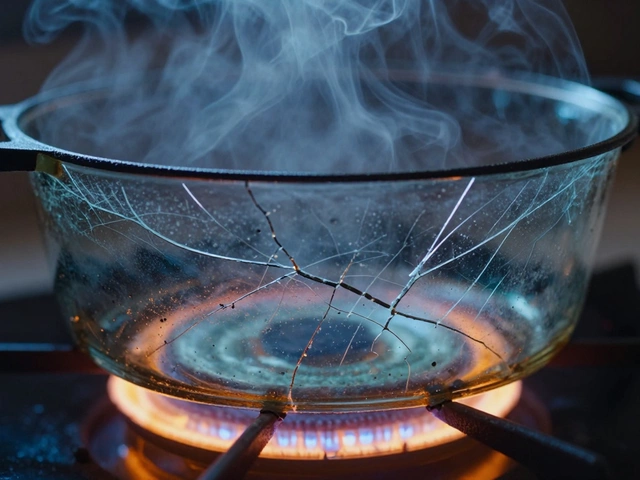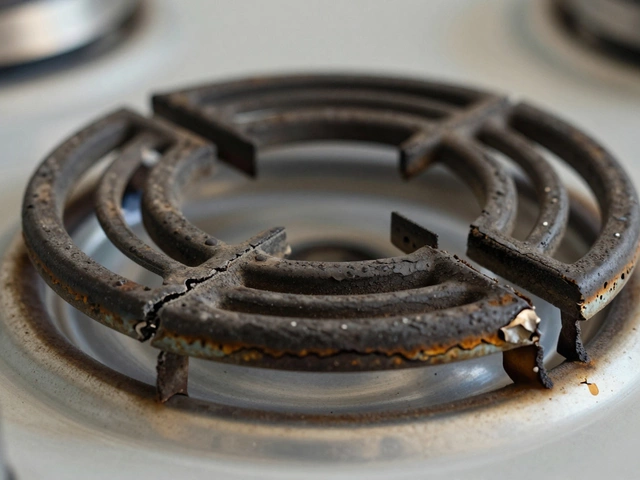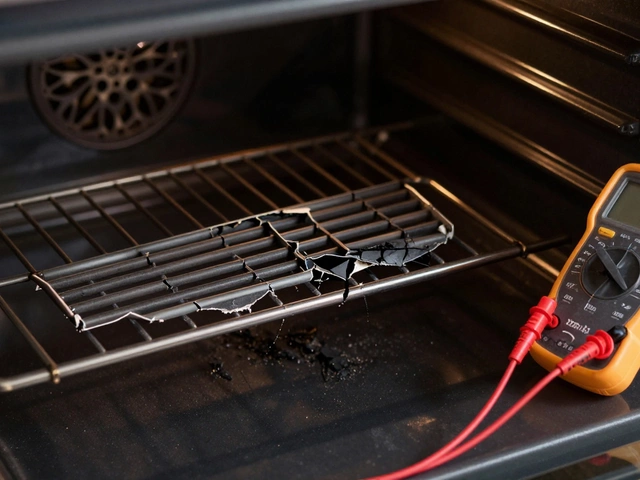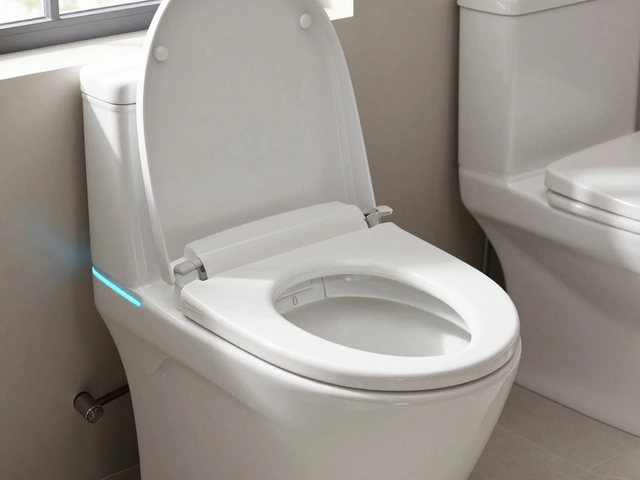In our daily hustle, household appliances work tirelessly to make our lives comfortable, yet their maintenance is often an afterthought. Modern conveniences like washing machines, refrigerators, and ovens can seem self-sustaining, but neglecting their care can lead to untimely issues.
Many don't realize that simple routine checks and maintenance can tremendously extend the lifespan and efficiency of these home essentials. Recognizing the signs that indicate when servicing is needed can save you money and stress in the long run.
Even if you're not a whiz with tools, straightforward maintenance tips can keep your appliances in top shape, and knowing when to call in the pros can be just as crucial. Let's delve into why regular servicing should be on your home care checklist.
- Understanding Appliance Lifespan
- Signs Your Appliance Needs Servicing
- DIY Maintenance Tips
- When to Call a Professional
- Long-Term Benefits of Regular Service
Understanding Appliance Lifespan
Every household appliance, from your trusty refrigerator to the diligent washing machine, is designed with a certain lifespan in mind. This lifespan isn’t just a marketing gimmick but a result of extensive engineering and testing. Typically, critical appliances like refrigerators and dishwashers have a lifespan ranging from 10 to 15 years, sometimes stretching beyond with good maintenance practices. Washing machines usually last about a decade, while microwaves might stand the test of time for roughly 9 years.
The longevity of an appliance largely depends on how it's used and maintained. Heavy or improper usage, paired with a lack of regular maintenance, can significantly shorten this expected lifespan. For instance, overloading washers can stress the motor, leading to more frequent breakdowns. Similarly, failing to clean the refrigerator coils can make it work harder, decreasing its efficiency and lifespan. Understanding these contributing factors gives consumers the power to extend their device's life through conscious care.
An often overlooked aspect is the difference in lifespan between major and minor appliances. While major appliances include things like your oven and refrigerator, which carry critical roles in daily functions, minor appliances like toasters and mixers, which cost less and usually sport shorter lifespans, often don't get much attention until they fail. It’s crucial to recognize that investing time in maintaining both can often prevent the small headaches that lead to bigger issues. Keeping a simple schedule of regular checks can save you from the inconvenience of unexpected malfunctions.
The role of technological advancements cannot be understated in this regard. With newer models featuring energy-efficient designs and smart diagnostics, today's appliances are built to last longer than their predecessors, provided they are used correctly. Some even have self-maintenance alerts that can help prevent issues before they become serious. This technology, while beneficial, should remind users of their ongoing responsibility to heed the notifications and carry out the prescribed maintenance tasks regularly.
"The key to appliance longevity lies not just in how you use them but largely in how you care for them," says Laura M. Kennedy, a home care expert.
Many factors influence an appliance's lifespan, yet one consistent truth stands out—maintenance is key. Routine servicing, like replacing filters, cleaning components, and following usage guidelines, stands as the most reliable way to ensure that an appliance remains functional and efficient for years. Understanding and adopting these strategies could mean the difference between having an appliance work like clockwork and dealing with constant repairs or replacements.
Signs Your Appliance Needs Servicing
Recognizing when appliance service is necessary can often be the difference between a simple fix and a costly replacement. It's easy to ignore minor hiccups in performance, especially if the appliance seems to be doing its job. But those hiccups can often spell trouble if left unchecked. One of the first things to notice is unusual noises, which can indicate a part that is worn and requires attention. A washing machine that clunks or a fridge that hums louder than usual could be alerting you to potential issues. Many homeowners also ignore poor performance, like a dryer that doesn't heat properly or an oven that takes too long to reach the desired temperature. These are more than just inconveniences – they could be early warnings.
In addition to odd sounds and poor performance, pay attention to any visible changes. Appliances like refrigerators might start showing signs of condensation or frost buildup, which can indicate failing seals or inefficient cooling systems. Leaks around appliances are another red flag. Whether it’s a puddle by the foot of your washing machine or a drip from the dishwasher, these can suggest issues with water supply lines, hoses, or seals that need prompt attention. Frequent tripping of circuit breakers or blown fuses in your home’s electrical system when using a specific appliance might also signal an underlying electrical problem. Resolving these earlier can save you from potentially bigger safety hazards.
Another aspect to consider is age and usage frequency. Older appliances are more likely to need maintenance checks, and those that are heavily used will naturally see more wear and tear. Think about how long you've had your device. A well-cared-for machine will undoubtedly last longer, but even the best will need parts replaced over time. Consider regular check-ups if your appliance is over a decade old. Frequency of service is often underestimated, with many unaware that gadgets of notable age should have tailored care routines. As parts wear out, they not only impact the specific appliance but can also affect energy efficiency, leading to higher utility bills without providing any increased benefits. Consult your manufacturer’s manual for recommended servicing timelines as another guideline.
It's crucial to remember that ignoring the need for servicing can also impact your utility costs in other ways. Appliances that are not performing well can often use more energy, raising your electricity or water bills without actually increasing the service they provide. Ensuring that all vents and filters are clear and clean can make vast impacts on performance, which in turn, helps maintain manageable utility expenses. Regular attention to these details can ensure your trusty appliances remain energy efficient, potentially saving you money in the long term, not to mention the lowered impact on the environment.
According to Consumer Reports, neglecting regular appliance maintenance can reduce the lifespan of heavy appliances like washers and refrigerators by up to 50%. This underscores the vital role of attentive care.Taking the time to recognize these signs and act upon them can make a substantial difference. It can extend the lifespan of your appliances, save money, and contribute to peace of mind knowing you're not on the brink of a kitchen crisis.
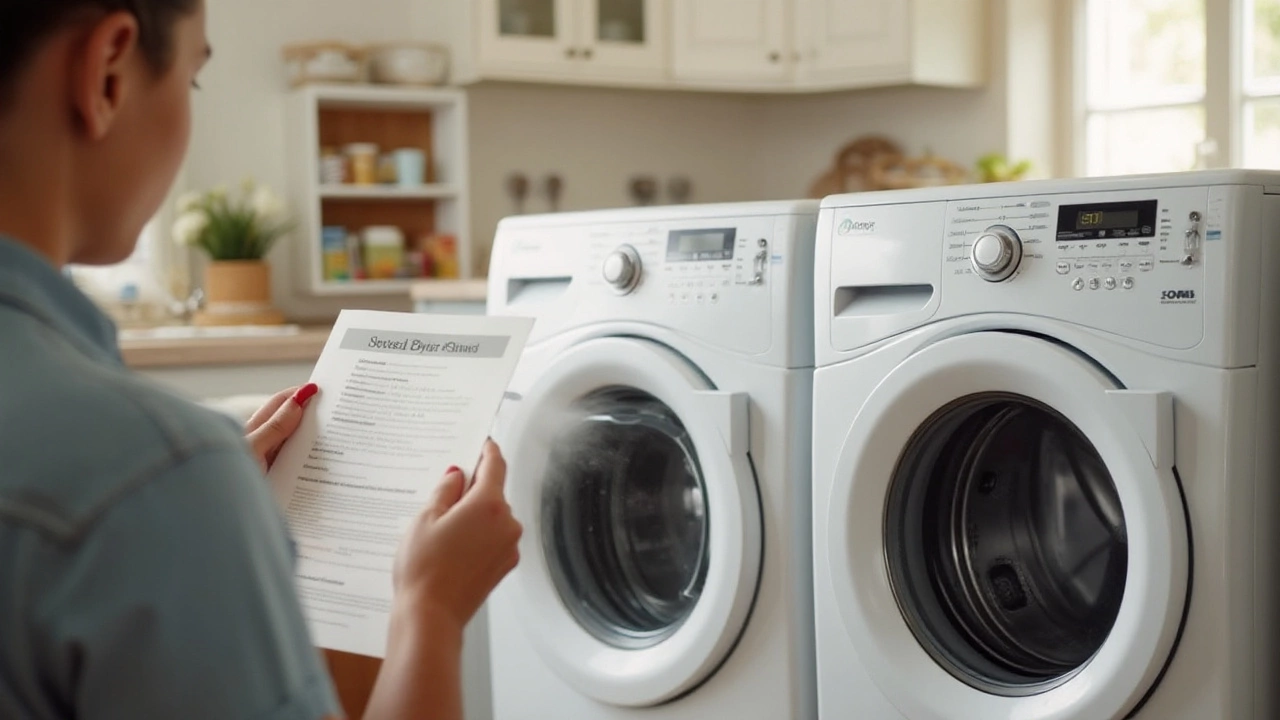
DIY Maintenance Tips
When it comes to keeping your household appliances in good working order, you don't necessarily need to be a tech wizard. Often, a bit of basic upkeep can stave off bigger issues. Maintenance might sound daunting, but rest assured, it's mostly about habit. Begin by making a checklist for each appliance. This could cover the fridge, washing machine, dishwasher - whatever gadgets make your world turn. Jot down tasks like checking seals, cleaning lint filters, or emptying crumb trays. Doing this monthly not only avoids mishaps but keeps your home humming smoothly.
Consider the refrigerator, one of the most active players in the kitchen. Its coils, typically located at the back or bottom, gather dust which hinders efficiency. Brushing them off every six months can prevent this, ensuring your fridge doesn’t overheat. Similarly, don’t neglect the seals on the doors; a simple soapy water clean keeps them sealing tight. And if you ever see frost buildup in your freezer, it’s time for a defrost - the manual comes in handy here.
As Ralph Atkinson, a well-known appliance maintenance expert, states, "Regular checks prevent costly breakdowns; it’s all about being proactive."
The same mindset applies across the board. Let’s take the washing machine. Never overload it, as this strains the motor. And once a month, run an empty wash cycle with hot water and vinegar to stave off unpleasant odors. It’s worth noting that the use of too much detergent can lead to a buildup, negatively impacting performance. Keep your detergent use measured.
Your trusty oven is another candidate for regular attention. Aside from the customary cleaning of spills, consider giving it a deep clean periodically. For electric ovens, inspect your door gasket and replace it if it gets worn. Gas ovens should have their burners examined to ensure they’re heating evenly. Don’t forget the range hood - clear those filters to avoid malfunctions. If you're comfortable with a screwdriver, it's often possible to disassemble parts of the stove to reach those stubborn crumbs.
| Appliance | Recommended Check Frequency |
|---|---|
| Refrigerator | Every 6 months |
| Washing Machine | Monthly |
| Oven | Quarterly |
Through these DIY maintenance tips, not only do you extend the lifespan of your appliances, but you also keep your living space operating smoothly. It's about valuing the role they play and nurturing their longevity. Whether it's wiping a surface or listening for strange noises, simple actions can create a huge impact. By treating every machine with care and attention, you are investing in a hassle-free lifestyle - because every bit of maintenance today sidesteps a breakdown tomorrow.
When to Call a Professional
Every appliance in your home has its own story, a tale of parts and pieces working in perfect harmony to bring you effortless ease. But there comes a time when the sound isn't right, the rhythm feels off, or worse, it all grinds to a halt. It's then that you might wonder if this is a job for some household tinkering or if it's time to dial up the pros. Calling a professional isn't about defeat; it's about knowing when an expert touch is needed to breathe life back into your beloved household appliances.
One of the clearest signs that it's time to involve an expert is when you hear unusual noises. A gentle hum is a washing machine's thank you for washing another load, but a rattling or banging could be its SOS. These sounds might point to loose screws or worn-out belts that need a professional’s expertise. Another red flag is inconsistent performance. If your refrigerator alternates between freezing everything to letting things spoil, it’s having a bad day, and it needs professional attention.
If you spot water pooling where it shouldn’t be, that's a strong indicator to seek expert help. Water leaks are a surefire sign of plumbing issues that can damage floors and create an environment conducive to mold growth. Sometimes, calling a professional isn't just about tackling immediate problems—it can also involve preventive care. Electrical issues, in particular, should always be left to the experts, as attempting to handle them yourself can be dangerous. Maintenance tasks, like checking for faulty wiring or cleaning internal components, are best done regularly by someone who knows exactly what to look for.
"An ounce of prevention is worth a pound of cure," said Benjamin Franklin, and this old adage holds remarkably true for appliance care. Regular professional checks can catch problems early. This foresight not only prolongs the life of your appliances but can, in the long run, save you a substantial amount on repairs.
In some cases, you might believe you can handle repairs on your own. While DIY may seem appealing, there's a fine line between managing minor issues and venturing into risky territory. Consider the availability of replacement parts. Some components are unique and specific to the appliance’s model, and they must be handled with the right tools. When parts need replacing, a professional brings the skill and resources necessary for safely obtaining and installing them.
This pattern of preventive action and responsive care translates to peace of mind. By knowing exactly when to call a professional, you bridge the gap between wanting to handle things ourselves and recognizing the need for expertise. Be it through keeping the appliance manuals handy for troubleshooting tips or knowing the warranty details by heart, these small steps collectively help in determining the right time to reach out for professional aid.

Long-Term Benefits of Regular Service
Regular maintenance of your household appliances isn't just a tedious chore; it brings a myriad of benefits that homeowners often overlook. One significant advantage is the extension of your appliance's lifespan. Consider your refrigerator or washing machine as an investment. Without proper care, these investments could falter sooner than expected, much like how a well-maintained car outlives one neglected. By introducing a simple routine of checks and upkeep, you are essentially ensuring that these devices provide optimum performance over a prolonged period.
Another notable benefit is cost efficiency. When appliances tick over smoothly and without a hitch, there's a lesser need for extensive repairs or part replacements, which can often cost a pretty penny. Imagine the simplicity of an annual service call compared to shelling out for a brand-new unit because an issue wasn't addressed early. This small, proactive step not only saves money but also the headache of dealing with sudden, inconvenient breakdowns.
Ultimately, regular servicing enhances the efficiency of appliances. Dust-laden filters and clogged vents may seem minor, but over time, they can compel appliances like air conditioners or dryers to work harder than necessary, leading to increased energy bills. This puts an unnecessary financial burden and contributes to higher energy consumption. By periodically replacing these components or cleaning them, the appliances run at their peak efficiency, ensuring that household energy consumption is kept in check.
From an environmental perspective, efficient appliances are kinder to the planet. With a smaller carbon footprint, homeowners indirectly contribute to a healthier environment. This aligns with the growing global focus on sustainable living. Appliances that run at optimum performance levels draw less power and perform their tasks in a more environmentally-friendly way.
"Taking care of your appliances is taking care of your home; an appliance that runs smoothly and efficiently ensures a harmonious household," remarks Emily Harris, an expert in sustainable home management.
And let's not forget the comfort factor. A regularly serviced heating system, for instance, guarantees warmth during those chilly Wellington winters, avoiding any unexpected icy incidents. The same goes for appliances that you rely on daily. So, next time you're tempted to skip a routine check-up or servicing call, think about these long-term benefits and the comfort they bring.
Moreover, some insurance policies and warranties hinge on regular upkeep. Failing to maintain your appliances could void these agreements, leaving you uncovered should anything go wrong. This is a seldom-discussed advantage of regular maintenance but adds another layer of security for homeowners. Peace of mind, efficiency, and cost savings are intertwined with the idea of regular appliance service. Consistent care and timely intervention can indisputably pay off in the form of secure and well-functioning household machines.





